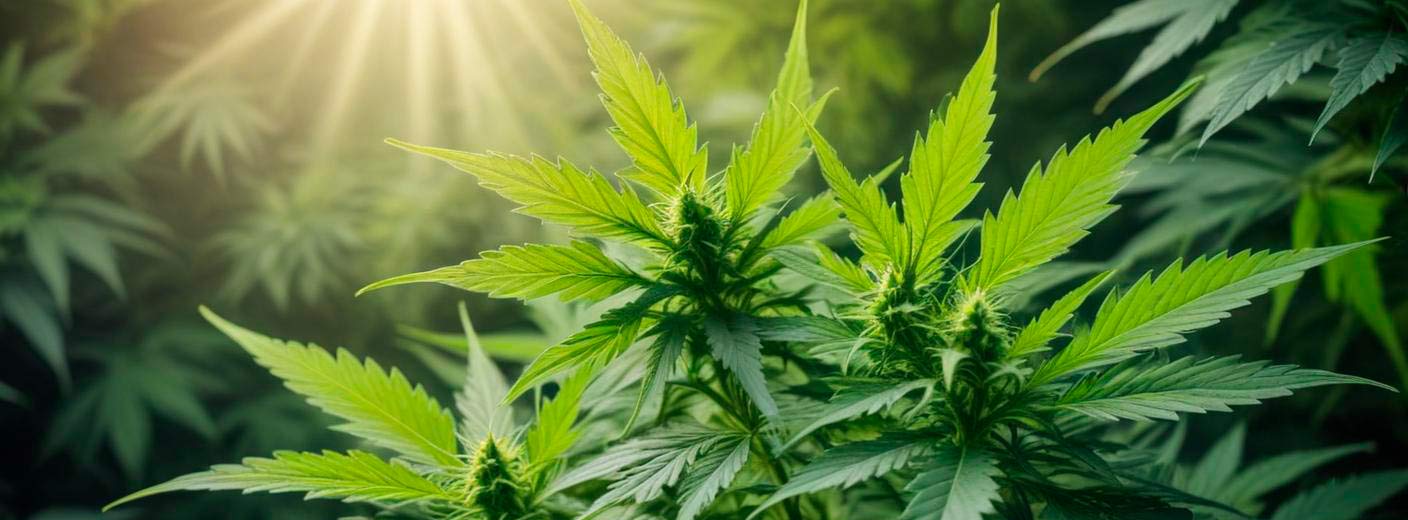In recent decades, Canada has taken significant steps to regulate industries that were once considered controversial. Both online gambling and cannabis have undergone substantial changes in their legal status, reflecting broader shifts in societal attitudes and government policy.
Canada’s progressive online gambling regulation has resulted in many licensed platforms. For players seeking a trusted and reliable source, this guide with top-rated options of the best online casinos in Canada, provides detailed information on all sites available. It also covers key aspects such as security, game variety, and user experience.

Historical Context of Legalization
Online Gambling Legalization History
Online gambling in Canada has evolved within a complex regulatory environment. Initially, gambling activities were primarily restricted, with most forms of gambling prohibited under the Criminal Code of Canada. However, in the 1990s, provinces began to assert their authority over gambling activities, leading to the gradual introduction of online gambling platforms.
The first significant step towards legal online gambling came in 1996 when the Mohawk Council of Kahnawake established the Kahnawake Gaming Commission. This body began issuing licenses to online casinos, setting a precedent for regulating online gambling in Canada. Provincial governments soon followed suit, with British Columbia launching Canada’s first government-run online casino, PlayNow, in 2010. Other provinces, such as Quebec and Ontario, have since developed their online gambling platforms.
Today, online gambling in Canada is regulated at the provincial level, with each province overseeing its operations. This decentralized approach has allowed provinces to tailor their regulatory frameworks to local preferences and economic considerations. However, it has also led to a patchwork of regulations that vary significantly from one province to another.
Cannabis Legalization History
The legalization of cannabis in Canada followed a different trajectory, driven by a combination of public health concerns, social justice issues, and economic opportunities. The medical use of cannabis was the first to be legalized, with Health Canada introducing the Medical Marijuana Access Regulations in 2001. This program allowed patients with specific medical conditions to access cannabis under strict regulations.
The move towards full legalization gained momentum in the 2010s, culminating in the passage of the Cannabis Act on October 17, 2018. This landmark legislation made Canada the second country in the world, after Uruguay, to legalize the recreational use of cannabis. The Cannabis Act established a comprehensive regulatory framework governing the production, distribution, and sale of cannabis across the country.
Like online gambling, the regulation of cannabis is primarily managed at the provincial level. Each province is responsible for setting its own rules regarding the sale, distribution, and consumption of cannabis, leading to a diverse regulatory landscape across Canada.
Regulatory Frameworks
Online Gambling Regulatory Structure
Online gambling in Canada is regulated by provincial governments, which have the authority to license and oversee gambling operations within their jurisdictions. This regulatory structure is grounded in the Criminal Code of Canada, which prohibits most forms of gambling unless conducted and managed by a provincial authority.
Critical aspects of the online gambling regulatory framework include:
- Licensing Requirements: Provincial authorities issue licenses to operators of online gambling platforms. These licenses are contingent on meeting strict fairness, security, and responsible gaming criteria.
- Age Verification: All online gambling platforms in Canada must implement robust age verification processes to ensure that only individuals of legal gambling age can access their services. The legal age for gambling varies by province, typically ranging from 18 to 19 years.
- Responsible Gaming Measures: Provincial regulators mandate that online gambling platforms provide tools and resources to promote responsible gaming. These measures include self-exclusion programs, deposit limits, and access to support services for individuals struggling with gambling addiction.
Cannabis Regulatory Structure
The regulation of cannabis in Canada is governed by the Cannabis Act, which sets out the federal framework for the production, distribution, and sale of cannabis. However, the implementation of these regulations is largely the responsibility of provincial and territorial governments.
Key components of the cannabis regulatory framework include:
- Licensing Requirements: Producers of cannabis must obtain a license from Health Canada, which ensures compliance with strict standards related to product quality, security, and public health. Retailers must also be licensed by provincial authorities.
- Age Restrictions: The legal age for purchasing and consuming cannabis varies by province, typically ranging from 18 to 21 years. Provinces are responsible for enforcing these age restrictions and ensuring that cannabis is not sold to minors.
- Distribution Controls: Provinces have the authority to determine how cannabis is distributed within their jurisdictions. Some provinces, such as Ontario and Quebec, have established government-run retail outlets, while others, like Alberta, allow private retailers to operate.

Consumer Protection Measures
Online Gambling Consumer Safety
Consumer protection is a central focus of online gambling regulation in Canada. Provincial regulators have implemented several measures to ensure that online gambling is conducted in a fair, transparent, and secure manner.
- Responsible Gambling Tools: Online gambling platforms are required to offer a range of tools to help players manage their gambling behaviour. These tools include setting deposit limits, time limits, and self-exclusion options, where players can voluntarily restrict their access to gambling services.
- Fraud Prevention: Provincial regulators work closely with online gambling operators to implement robust fraud prevention measures. These include secure payment systems, encryption technologies, and regular audits to ensure the integrity of gambling operations.
- Fair Play Assurance: All online gambling platforms in Canada must use certified random number generators (RNGs) to ensure that the outcomes of games are fair and unbiased. This is a critical aspect of maintaining consumer trust in the online gambling industry.
Cannabis Consumer Safety
The regulation of cannabis in Canada is designed to protect consumers by ensuring that cannabis products are safe, accurately labelled, and free from harmful contaminants.
- Product Quality Standards: Health Canada sets strict standards for the production of cannabis, including requirements for testing products for potency and contaminants such as pesticides and mould. Licensed producers must comply with these standards to ensure that consumers receive safe and consistent products.
- Packaging and Labeling: Cannabis products in Canada must be sold in child-resistant packaging and include clear labelling that indicates the product’s potency, ingredients, and health warnings. This helps consumers make informed decisions about their cannabis use.
- Public Health Initiatives: Provincial governments have launched public health campaigns to educate consumers about the risks associated with cannabis use, particularly for young people and pregnant women. These initiatives aim to promote responsible use and reduce the potential harm associated with cannabis.
Economic Impact
Online Gambling Industry Contributions
The online gambling industry is a significant contributor to the Canadian economy, generating substantial revenue for provincial governments and creating jobs in the technology and service sectors.
- Revenue Generation: Provincial online gambling platforms generate millions of dollars in revenue each year, which is used to fund public services such as healthcare, education, and infrastructure. For example, the Ontario Lottery and Gaming Corporation (OLG) reported nearly $2.5 billion in revenue from online gambling in 2021.
- Job Creation: The growth of the online gambling industry has created jobs in areas such as software development, customer service, and regulatory compliance. These jobs are particularly important in smaller communities where employment opportunities may be limited.
Cannabis Industry Contributions
The legalization of cannabis has also had a significant economic impact in Canada, driving growth in the agricultural, retail, and manufacturing sectors.
- Tax Revenue: The cannabis industry generates substantial tax revenue for federal and provincial governments. In 2021, the federal government collected over $800 million in excise taxes from cannabis sales, with additional revenue generated through provincial sales taxes.
- Job Creation: The cannabis industry has created thousands of jobs across Canada, from cultivation and processing to retail and distribution. The industry also supports ancillary businesses, such as packaging and logistics companies.
Social Considerations
Online Gambling and Public Health
The expansion of online gambling in Canada has raised concerns about its potential impact on public health, particularly regarding gambling addiction.
- Gambling Addiction: Research indicates that online gambling may be associated with a higher risk of addiction compared to traditional forms of gambling due to its accessibility and the ability to gamble anonymously. Provincial governments have responded by funding programs that provide support and treatment for individuals struggling with gambling addiction.
- Social Stigma: Despite the growing acceptance of online gambling, there is still some social stigma associated with gambling in general. Public education campaigns aim to reduce this stigma by promoting responsible gambling and highlighting the risks of addiction.
Cannabis Use and Public Health
The legalization of cannabis has also prompted concerns about its impact on public health, particularly among young people and vulnerable populations.
- Health Risks: While cannabis is widely used for both medical and recreational purposes, it is not without risks. Regular use of cannabis, especially at a young age, has been linked to mental health issues, such as anxiety and depression. Provincial governments have launched education campaigns to inform the public about these risks and encourage responsible use.
- Changing Social Attitudes: The legalization of cannabis has led to a shift in social attitudes, with many Canadians now viewing cannabis use as a normal part of life. However, there is still debate about the long-term social and health implications of widespread cannabis use.

Are Online Gambling and Cannabis Legalization on a Converging Path in Canada?
The regulatory parallels between online gambling and cannabis legalization in Canada highlight the complexities of managing emerging industries. Both sectors have undergone significant changes in recent years, driven by shifting public attitudes and government policies. While the regulatory frameworks for online gambling and cannabis differ in their specifics, they share common goals of protecting consumers, generating economic benefits, and mitigating public health risks. As these industries continue to evolve, ongoing regulation and enforcement will be essential to ensuring that they operate in a safe, fair, and responsible manner.
